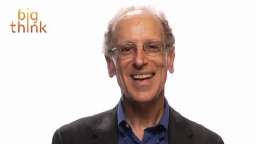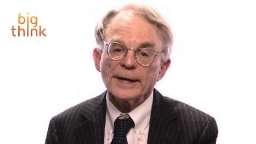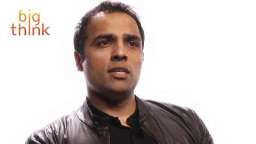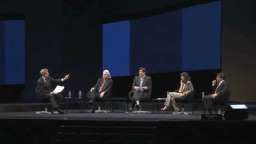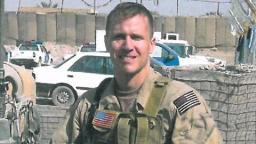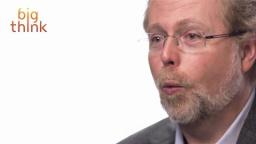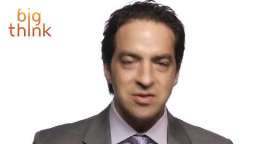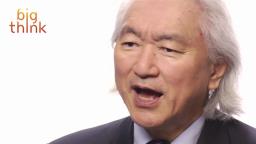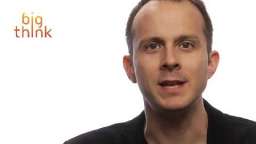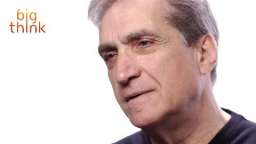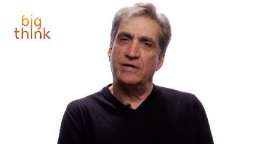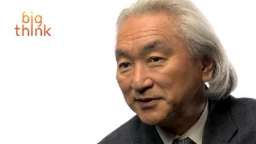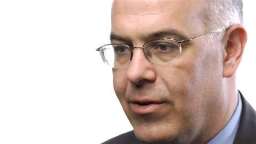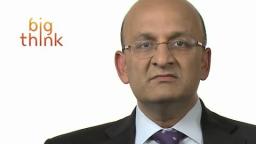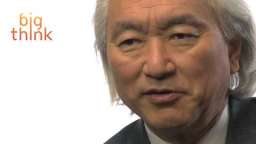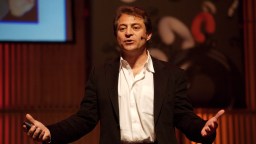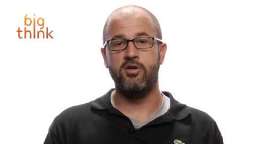All Videos
All Stories
Is it ethical to profit from someone else’s innocent error? Former New York Times columnist Randy Cohen answers the first in a series of Big Think readers’ ethical questions.
▸
2 min
—
with
What’s the future of online retailing? Adam Bryant of The New York Times interviews Susan Lyne, CEO of Gilt Groupe, which offers insider access to top luxury brands at discounted […]
▸
2 min
—
with
During the lead up to the financial crisis certainly several of us saw at some point that there were major problems and we talked with clients.
▸
2 min
—
with
According to Chahal, the right hiring is key to innovating, executing, and winning as a company.
▸
2 min
—
with
Booz & Company’s Chief and Marketing and Knowledge Officer Tom Stewart moderated the Big Think panel made up of Michael Schrage, MIT Sloan School of Management research fellow, theoretical physicist […]
▸
49 min
—
with
A panel of Big Think experts debates the impact of education on the industries of the future.
▸
9 min
—
with
Eric Greitens is a former Navy SEAL and the current CEO of The Mission Continues. He is also the author of The Heart and The Fist: The Education of A […]
▸
3 min
—
with
Due to the negative association of the word “chemicals” with packaged foods, a kind of religion has developed around “natural” foods. Hold on, says molecular gastronomist Nathan Myhrvold. Many of […]
▸
2 min
—
with
Archeologist and entrepreneur Larry Coben describes how he was able to spend very little money, enhance preservation and create an enormous community benefit in a Bolivian village.
▸
2 min
—
with
Like predicting the Apocalypse, predicting earthquakes is a tough business to be in. James Berkland is a very controversial figure in this field. In 1999, he was suspended from his […]
▸
with
CEOs have “almost a reverence in their voice for people who are fearless.”
▸
1 min
—
with
One of the most interesting stories of the last ten years is the turnaround of the largest company in the world—Walmart.
▸
2 min
—
with
Kennedy realized that people were agreeing with him and with each other because they didn’t want to feel out of place.
▸
2 min
—
with
Examples of military leadership in Iraq show us the limitations of leadership that stomps out dissent.
▸
1 min
—
with
Robert Pinsky takes his poem “The City” and transforms it into a Tweet.
▸
with
Robert Pinsky reads his recently published poem, The City.
▸
3 min
—
with
Human beings are very deeply motivated by four primary drives: to acquire, to bond, to create meaning and defend. One of the organizations that does a great job of balancing […]
▸
2 min
—
with
Sal Khan is the founder of the Khan Academy, which offers free online lessons on a wide range of subjects. One of the key factors that has made Khan Academy […]
▸
2 min
—
with
Big Think reader Liam Stein asks Dr. Michio Kaku the question “How will the world look post-singularity? Can you walk us through a day in the life of a transhuman?”
▸
2 min
—
with
Researchers at Purdue University created a high-resolution, interactive map that shows where U.S. carbon emissions originate. The highest amounts don’t necessarily come from the places you’d expect. The southeastern states, […]
▸
with
if you’re stuck in a bad marriage with bad behavior, then do things, certain habits that you do every day that you would never do otherwise.
▸
1 min
—
with
If we took a much more supple view of how the world actually works, we wouldn’t spend all our time trying to break everything apart to study the details.
▸
2 min
—
with
Joshua King had a great game plan: make a list of the companies he wanted to work for, research them, and network with as many people as possible. He ended […]
▸
2 min
—
with
Many people possess an over-confidence in their own moral capacity. Nitin Nohria, dean of Harvard Business School, argues this overconfidence is what so often gets people in trouble.
▸
3 min
—
with
Every week Dr. Kaku answers a question from our readers. This week Bruce Vang asks “Are we ever going to develop a machine that can control the weather somewhat?”
▸
1 min
—
with
Peter Diamandis, Chairman and Co-Founder of Singularity University, argues the best way to predict the future is to create it yourself.
▸
with
The technological utopia known as the Singularity–when mankind merges with machines–will not bring immortality, says the philosopher John Gray.
▸
2 min
—
with
